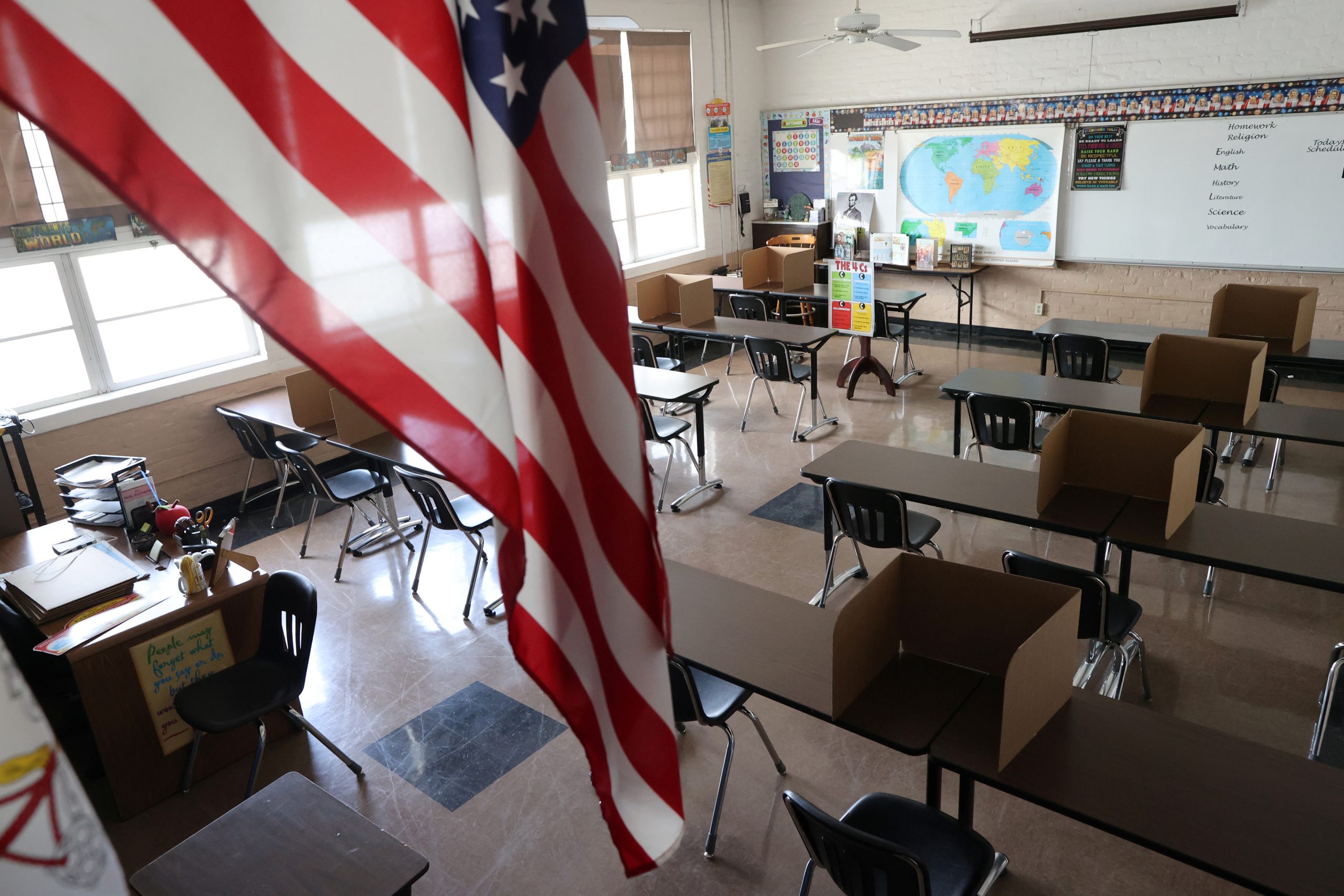The Biden administration announced plans to spend $10 billion to assist states with conducting COVID-19 testing in schools. The funding comes from Biden’s $1.9 trillion COVID-19 relief package.
The $10 billion is part of the $122 billion the relief package has allocated for K-12 schools. Included in the announcement is how much money each state will receive.
Just announced $ for schools: Biden administration sending $10 billion to support states w/conducting COVID-19 testing in schools.
— Bo Erickson Reuters (@BoKnowsNews) March 17, 2021
And this is how much $ each state will receive in total from the $122 billion in the Rescue Plan: pic.twitter.com/7dY0Gr9pPs
“This pandemic has taken an extraordinary toll on students, parents, educators, and schools, and we know that our schools, students, and communities need help now to reopen safely and quickly, and to stay open,” Secretary of Education Miguel Cardona said.
He continued, “These funds from the American Rescue Plan and the extraordinary steps the Department is taking to get these resources to states quickly will allow schools to invest in mitigation strategies to get students back in the classroom and stay there, and address the many impacts this pandemic has had on students—especially those disproportionately impacted by the pandemic.”
The funds will be made available this month.
A February CDC study found “educators can play an important role in in-school transmission and that in-school transmission can occur when physical distancing and mask compliance are not optimal.”
Biden said earlier this month his goal is to have all educators vaccinated by the end of March.
“My challenge to all states, territories and the District of Columbia is this: We want every educator, school staff member, child care worker to receive at least one shot by the end of the month of March,” Biden said.
According to Gallup, 79% of parents of K-12 students in the United States support providing in-person learning “right now,” as IJR reported.
Many of them are concerned about “damage to their children’s academic progress, psychological health and social development” without in-person learning.

























 Continue with Google
Continue with Google